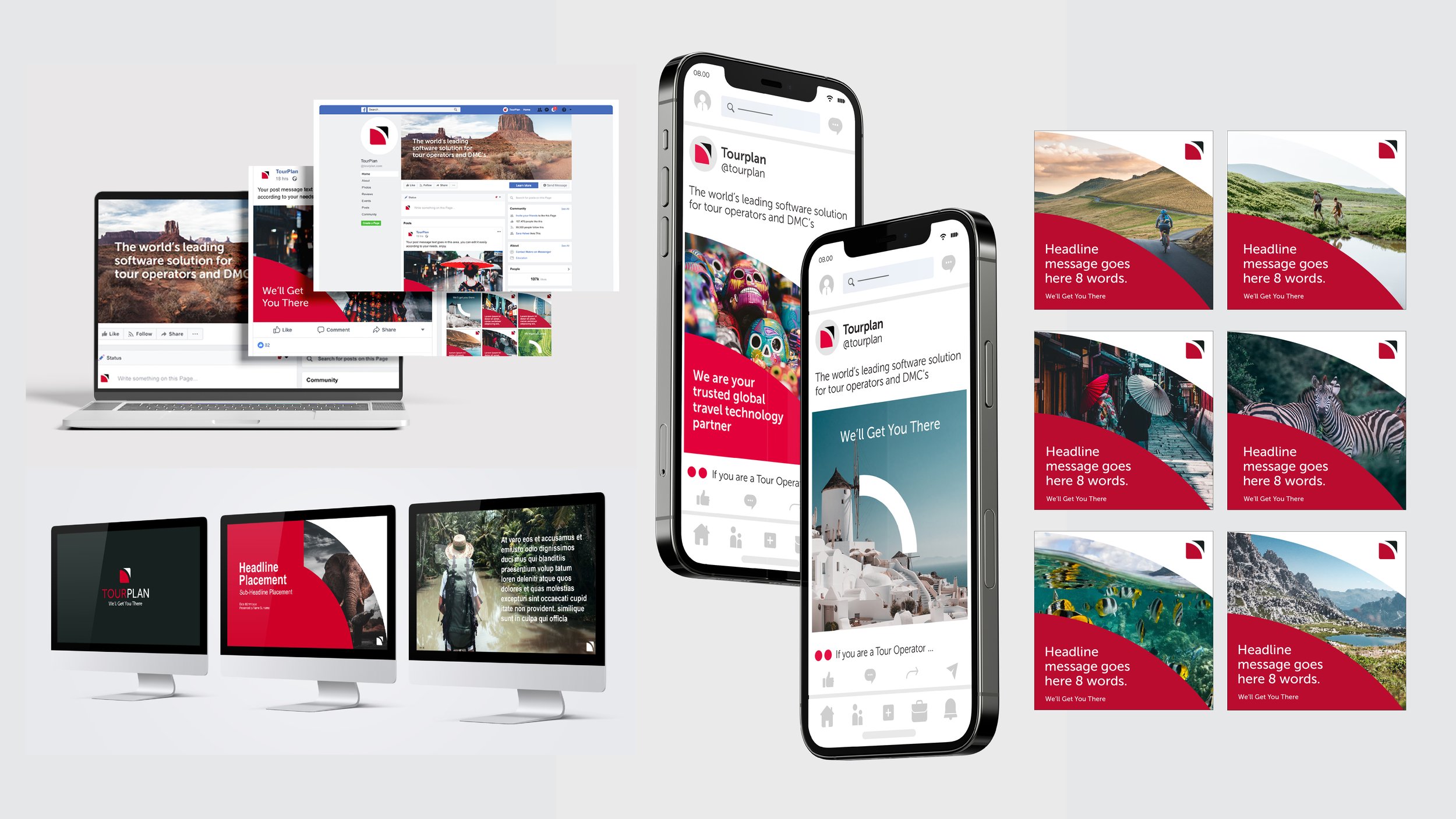Trends Driving Digital Transformation in UK Tourism in 2025
Introduction
The UK tourism industry is undergoing an exciting transformation. With digital technologies evolving at an unprecedented pace, businesses have the opportunity to revolutionise how they operate and connect with customers. By 2025, embracing digital transformation won’t just be a strategy—it will be a necessity.
At Hitchcock Michalski, we understand the unique challenges and opportunities facing the industry. Let’s explore the trends shaping the future of UK tourism and the steps businesses can take to stand out in an increasingly competitive market.
1. Smart Tourism: Redefining the Travel Experience
Imagine a journey where every aspect feels effortless. That’s the potential of smart tourism, powered by technologies like IoT, artificial intelligence, and real-time data.
From interactive kiosks in airports to AI-driven itinerary planners, these tools enhance convenience and personalisation. For UK businesses, adopting smart tourism technologies can help deliver seamless, memorable experiences that keep travellers coming back.
2. Personalisation in Tourism: Meeting Traveller Expectations
Today’s travellers expect more than one-size-fits-all packages. They want personalised experiences that reflect their preferences, values, and aspirations.
By leveraging data analytics and AI, businesses can craft tailored itineraries and recommendations. Tourplan, one of our standout projects, is a great example of this. In refreshing their brand identity, we highlighted their ability to deliver customer-focused solutions, positioning them as leaders in personalisation.
For UK tourism businesses, embracing personalisation is no longer optional—it’s essential to staying relevant and competitive.
3. Immersive Technologies: Engaging Audiences with AR and VR
Virtual reality (VR) and augmented reality (AR) are transforming how tourists engage with destinations. Imagine offering virtual tours of iconic landmarks or AR apps that bring history to life. These tools don’t just engage—they inspire travellers to book their trips.
For UK tourism brands, investing in AR and VR can set them apart, turning potential customers into enthusiastic visitors before they even leave home.
4. Sustainable Tourism: Embracing Green Practices Through Digital Tools
Sustainability is no longer a nice-to-have—it’s a must-have. Modern travellers care deeply about their environmental impact and expect businesses to do the same.
Digital tools are empowering tourism companies to adopt eco-friendly practices. AI can manage visitor flows to prevent overcrowding at popular sites, while apps can track carbon footprints and promote green travel options.
UK tourism businesses that prioritise sustainability—and communicate their efforts effectively—can earn the trust and loyalty of eco-conscious travellers.
5. Tourplan’s Transformation: A Case Study in Branding Excellence
When Tourplan approached us, they were ready to modernise their brand to reflect their innovative, customer-centric approach. We worked with them to create a refreshed, cohesive identity that spoke to their values and the fact that they were an innovator in the Travel Technology space .
The result was more than a visual transformation—it was a strategic repositioning that positioned Tourplan as a forward-thinking leader in travel technology.
This success story demonstrates the power of branding to elevate a business and align with modern industry trends.
Want to see how branding can transform your business? Explore the full Tourplan case study to discover how we helped a global leader in travel technology redefine their brand for the digital age.
6. Strategic Steps for UK Tourism Businesses
To prepare for the future, here are some actionable steps for businesses in the UK tourism industry:
Audit Your Brand Strategy across physical and digital channels: Identify gaps in your online platforms and optimise them for user experience and discoverability.
Adopt Advanced Technologies: From AR tours to contactless booking systems, invest in tools that elevate the customer journey.
Prioritise Sustainability: Showcase your commitment to green practices by sharing your efforts transparently.
Tell Your Story: Develop a consistent, impactful narrative that connects emotionally with your audience.
Conclusion: A Digital-First Future for UK Tourism
The future of UK tourism is digital. From smart technologies and personalised experiences to immersive tools and sustainable practices, the opportunities are endless for businesses ready to adapt.
At Hitchcock Michalski, we’re passionate about helping businesses embrace change and thrive in a rapidly evolving landscape. Whether it’s reimagining your brand or leveraging the latest technologies, let’s create a brand that truly stands out.
“Let’s shape the future together. Ready to transform your brand? Contact Hitchcock Michalski today for bespoke digital branding solutions tailored to your business goals.”
Frequently Asked Questions (FAQ)
-
Item descrDigital transformation in tourism refers to the integration of advanced technologies—such as AI, IoT, AR/VR, and data analytics—to enhance customer experiences, streamline operations, and improve decision-making. It’s about using digital tools to create smarter, more personalised, and sustainable travel experiences.iption
-
As traveller expectations evolve, digital transformation enables businesses to:
Offer personalised experiences.
Stand out in a competitive market.
Streamline operations with technologies like contactless systems and AI.
Align with sustainability goals to appeal to eco-conscious travellers.
By 2025, businesses that fail to embrace these changes risk falling behind.description
-
Smart tourism uses IoT, real-time data, and AI to create seamless, connected travel experiences. Examples include smart kiosks at airports, location-based apps, and AI-driven itinerary planners. For UK businesses, adopting smart tourism technologies can enhance customer satisfaction and operational efficiency.
-
Digital tools enable businesses to adopt and showcase eco-friendly practices. For example:
AI can help manage visitor flows to reduce overcrowding at popular destinations.
Carbon tracking apps allow businesses and travellers to monitor and offset emissions.
Sustainability is a growing priority for modern travellers, and digital transformation makes it easier to align with these values.
-
To future-proof your business:
Audit your current digital presence and identify areas for improvement.
Invest in technologies like AR/VR, contactless systems, and AI.
Focus on personalised experiences by leveraging data analytics.
Adopt and communicate sustainability initiatives.
Collaborate with experts to refine your branding strategy.
-
Tourplan’s rebranding highlights how a business can modernise its identity to align with digital transformation trends. The project focused on refreshing their visual and narrative identity, positioning them as innovators in the travel technology space. It’s a testament to the power of branding in staying relevant and competitive.
-
At Hitchcock Michalski, we specialise in crafting bespoke branding solutions that reflect your business’s essence and align with future trends. From reimagining your visual identity to developing strategies for digital transformation, we’re here to help your brand stand out and succeed in a rapidly evolving market.
Author Information:
Fiona Hitchcock - Managing Director at Hitchcock Michalski
With 28 years of experience in the print industry, advertising, marketing, and brand strategy and design, Fiona Hitchcock leads Hitchcock Michalski with a deep understanding of diverse consumer landscapes. A thought leader in brand management, Fiona is dedicated to creating impactful work that resonates with audiences and stands the test of time. Her approach is rooted in integrity, excellence, and creativity, driving her passion for transforming brands and challenging the status quo. Connect with Fiona Hitchcock on LinkedIn 



